24 Hours Hotline: +8613735411378
Email:chengdu@tripstoshanghai.com
24 Hours Hotline: +8613735411378
Email:chengdu@tripstoshanghai.com
Geography & Transportation Comparison
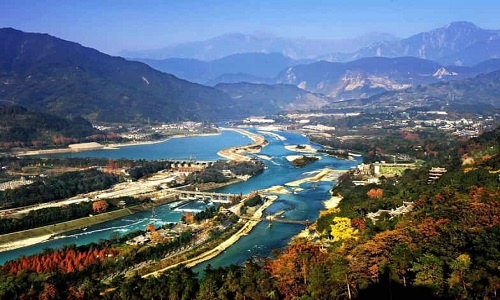
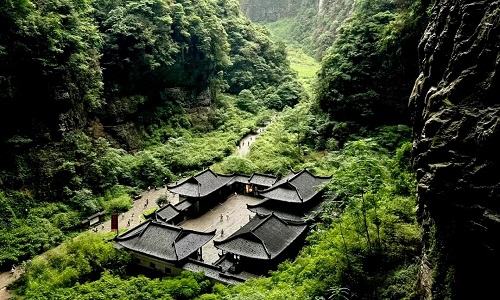
Spatial Layout Differences
The fundamental contrast between Chengdu and Chongqing lies in their urban planning and topography:
Chengdu: Plains Chessboard Layout (Navigation-Friendly)
Chengdu is built on the Sichuan Basin plains, featuring a grid-like street system that makes navigation extremely straightforward. Even first-time visitors can easily use apps like Baidu Maps or Google Maps without issues. The city’s ring roads (First Ring Road to Sixth Ring Road) expand outward logically, with attractions, business districts, and transportation hubs clearly distributed along these rings.
Chongqing: 3D Magic Mountain City (Navigation Nightmares)
Chongqing is a city of mountains, rivers, and layers. Roads spiral upward, bridges connect cliffs, and buildings are stacked on hilltops. It’s common to:
Walk into a building on the 1st floor and exit on the 12th floor onto another street.
Drive on the Yangtze River Bridge while a metro train passes above you, and a ship sails below you.
Use Baidu Maps? It often shows you’re "10m away"… but that might mean vertically 50m above or below!
Pro Tip: In Chongqing, ask locals for directions instead of relying solely on navigation apps. They’ll give advice like, "Take the elevator to the 8th floor and turn left after the hot pot restaurant."
Transportation Experience Comparison
Mode Chengdu Experience Chongqing Experience
Subway Flat, clear transfers; covers all key areas Endless stairs; Line 2 feels like a roller coaster
Taxi Metered, calm drivers "Flying taxis" that climb 45° slopes; adrenaline guaranteed
Bike Share Everywhere (Meituan/Hellobike) Almost nonexistent (unless you’re a professional climber)
Unique Modes None Cable cars over rivers; elevators as public transport
Chongqing’s 3D Transport Trivia:
The Liziba Metro Station passes through a residential building’s 6th floor.
The Hongyadong Elevator is considered a "vertical highway."
Banana-shaped ramps on overpasses confuse even veteran drivers.
Intercity Travel: Chengdu - Chongqing
Option Details Cost & Time
High-Speed Rail daily departures; most from Chengdu East - Chongqing North 1.5 hours; ¥96-150
Self-Drive G93 Expressway (scenic but mountainous) 3.5 hours; ¥150 toll + gas
Bus Cheap but slow; prone to traffic jams 4 hours; ¥80-100
Driving Warning:
The G93 Expressway has long uphill/downhill sections with frequent fog.
Chongqing’s multi-level interchanges (e.g., Huangjuewan) have been known to confuse GPS for hours.
Best Choice: Take the high-speed rail—it’s fast, comfortable, and avoids traffic stress. Buy tickets in advance during holidays!
Insider Advice
For navigation beginners: Start with Chengdu.
For adventure seekers: Chongqing’s transport is an attraction in itself.
Intercity tip: Use the high-speed rail’s "reserved seat" option for peak seasons.
Travel Cost Breakdown: Chengdu vs Chongqing
When planning a trip to Sichuan, your budget can vary dramatically depending on whether you choose Chengdu's cultured elegance or Chongqing's fiery energy. Here’s a detailed cost comparison to help you plan wisely.
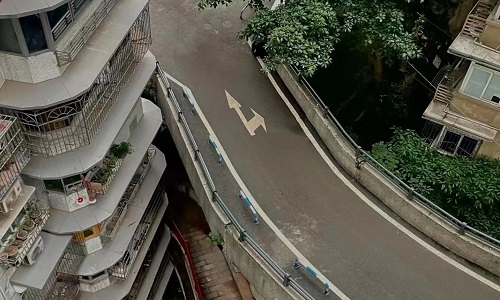
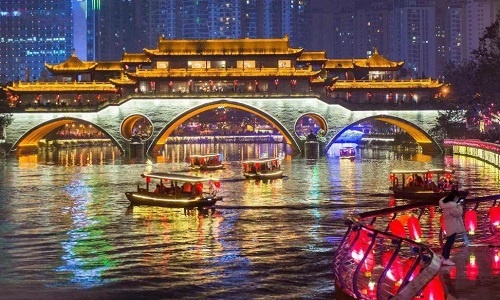
Accommodation Costs: Chengdu vs Chongqing
Accommodation Type Chengdu (Chunxi Road Area) Chongqing (Jiefangbei Area) Key Differences
Budget Hotels 200RMB/night 180RMB/night Chongqing is slightly cheaper but rooms may be smaller due to space constraints
Luxury Hotels 1,200RMB/night 1000RMB/night Chengdu offers more international chains (Ritz-Carlton, Waldorf),
while Chongqing has boutique design hotels
Unique Stays Kuanzhai Alley area Hongya Cave area Chengdu: Courtyard guesthouses; Chongqing: Stilted houses with river views
Pro Tip:
In Chongqing, avoid rooms near elevated roads—night traffic noise is intense.
In Chengdu, stay near Metro Line 3 for best access to pandas and ancient towns.
Food & Drink Costs
Chengdu: Snack Paradise
Average snack cost: ¥15-25/item
Long Chaoshou (wontons): ¥18/bowl
Zhong Shui Jiao (dumplings): ¥15/plate
Teahouse experience: ¥30-50 (unlimited refills + people-watching)
Hot pot: ¥80-100/person (milder broth, more ingredient varieties)
Chongqing: Bold Flavors
Jianghu cuisine : 60RMB/person
Mao Xue Wang (duck blood curd stew): 55RMB/bowl
Lazi Ji (spicy chicken): 48RMB/plate
Street noodles: 8-10RMB/bowl (spicier, heavier oils)
Hot pot: 70-90RMB/person (numbing spicy broth, simpler ingredients)
Nightlife Comparison:
Chengdu: Jiuyanqiao Bar Street (craft beers ¥40-60)
Chongqing: Nanbin Road (local beers ¥25-35)
Attraction Expenses
Attraction Chengdu Cost Chongqing Cost Insider Tip
Panda Base 58RMB N/A Go at 8:30 AM when pandas are most active
Yangtze River Cable Car N/A 30RMB Sunset rides cost the same but offer best photos
Jinli Ancient Street Free (snacks extra) N/A Avoid weekends—overcrowded
Hongya Cave N/A Free Night visits are stunning but packed
Buddha Zen at Mount Emei 185RMB N/A Requires 2-day hike to summit
Wulong Karst N/A 135 RMB (train included) 3 hours from downtown Chongqing
Transportation Costs
Chengdu:
Metro: 2-7RMB/ride (covers 90% attractions)
Bike-sharing: 5RMB/day
Chongqing:
Monorail: 3-10RMB/ride (some lines scenic)
Cable car: 20RMB/one-way
Taxi warning: Routes are confusing—expect detours.
Daily Budget Comparison
Travel Style Chengdu (per day) Chongqing (per day)
Budget Backpacker 200-250RMB 180-220 RMB
Mid-range Traveler 400-500RMB 350-450RMB
Luxury Experience 800-1200RMB 700-1000RMB
How to Choose Based on Budget
Pick Chengdu if: You prefer cultural experiences (temples, museums) and milder food.
Pick Chongqing if: You want dramatic landscapes and adrenaline-fueled eating.
Money-saving hack: Base yourself in Chongqing (cheaper) and take a 1.5-hour bullet train to Chengdu for day trips.
3. Food Culture Showdown: Chengdu vs Chongqing
When it comes to Sichuan cuisine, Chengdu and Chongqing are like two siblings with radically different personalities. Here’s how their food cultures collide—and why it matters for your taste buds.
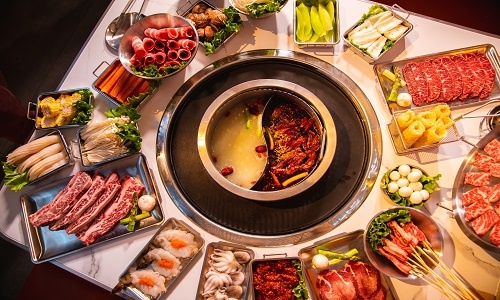
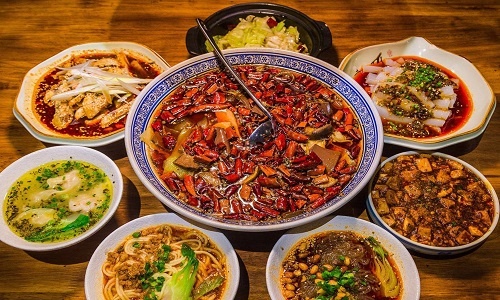
Hotpot Rivalry: Two Schools of Fire
Chengdu Hotpot
Style: Refined, aromatic, and tourist-friendly
Broth Base: Light buffalo oil with medicinal herbs
Signature Dip: Sesame oil + minced garlic (cooling effect)
Cultural Compromise: Yuan Yang Pot (split spicy/mild) is everywhere
Typical Order: Premium sliced beef, lotus root, quail eggs
Chongqing Hotpot
Style: Brutal, uncompromising, and locally adored
Broth Base: Pure beef tallow with 3x the chili of Chengdu
Signature Dip: Dry chili powder + peanut crumbs OR classic oil dip
Zero Tolerance: Asking for mild broth may get you side-eye
Typical Order: Beef tripe, duck intestine, pig brain
Hotpot Comparison Chart:
Feature Chengdu Chongqing
Spice Level middle extreme
Oil Base Mixed oil Pure beef tallow
Tourist-Friendly Yes Not really
Typical Cost 120 RMB/person 80 RMB/person
Street Food Battle: Delicate vs Gutsy
Chengdu Snacks
Finger foods perfected over centuries:
Three Cannons: Glutinous rice balls thrown onto a drum—makes 3 loud bounces
Sugar Oil Fruit: Sweet fried dough coated in palm sugar
Dragon Wontons: Translucent-skinned purses of minced pork
Best Spot: Wenshu Monastery snack street
Chongqing Snacks
Bold, messy, and unapologetically greasy:
Xiao Mian: 5-RMB breakfast noodles that locals queue for
Grilled Brain: Spicy tofu-like texture served in foil cups
Skewers: DIY sticks cooked in numbing broth
Best Spot: Jiefangbei roadside stalls after 10 PM
Tea Culture Clash: Relaxation vs Rebellion
Chengdu Tea Houses
Setting: Bamboo chairs in century-old courtyards
Ritual: Gaiwan (lidded bowl) tea brewing demonstrations
Soundtrack: Clicking mahjong tiles and gentle chatter
Must-Try: Jasmine tea with sunflower seeds
Experience: People’s Park—watch matchmaking sessions between seniors
Chongqing Tea Scenes
Setting: Plastic stools on steep staircases
Vibe: Gangster-era stories over strong Tuocha tea
Soundtrack: Card games and roaring laughter
Must-Try: Bitter tea paired with spicy dried beef
Experience: Ciqi Kou—teahouses where dock workers once plotted business deals
Chef’s Insider Perspective
Interview with Chef Zhang, 30-year veteran of Sichuan cuisine:
"Chengdu food is like classical music—precise and refined. Chongqing food is rock 'n' roll—loud, spicy, and in your face. Tourists should try both to understand real Sichuan flavor."
Final Verdict
Choose Chengdu if: You want to explore nuanced flavors and enjoy leisurely dining.
Choose Chongqing if: You seek bold, adrenaline-pumping food adventures.
Pro Tip: Train your tolerance with Chengdu hotpot first before attempting Chongqing’s version!
4. Experience Showdown: Chengdu's Culture vs. Chongqing's Spectacle
When it comes to attractions, Chengdu and Chongqing offer fundamentally different experiences—one is a cultural deep dive, the other a sensory overload. Here’s how they compare.
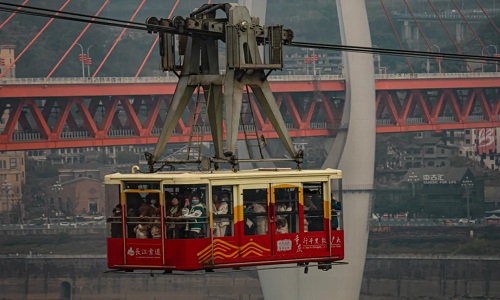
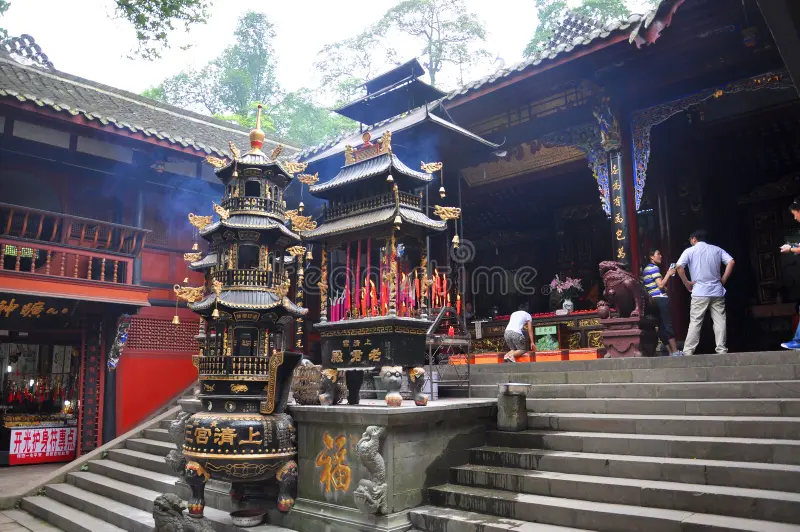
Iconic Attractions: Tradition vs. Cyberpunk
Chengdu’s Kuanzhai Alley
The Vibe: A polished but authentic Qing Dynasty neighborhood with courtyard homes turned into teahouses, art galleries, and craft shops.
The Reality:
Commercial but charming—avoid weekends to escape crowds.
Best for: Sipping tea in a tranquil courtyard, buying Shu embroidery souvenirs.
Secret Tip: Visit at 8 AM to see the alleys without tourists—perfect for photography.
Chongqing’s Hongya Cave
The Vibe: An 11-story Blade Runner-esque fortress stacked on a cliffside, glowing with neon lights at night.
The Reality:
Overwhelmingly crowded—expect to shuffle through crowds.
Best for: Taking that iconic night shot from the opposite riverbank.
Secret Tip: The ground floor has the best mala skewer stalls—look for the longest line.
Natural Wonders: Serenity vs. Adventure
Chengdu’s Qingcheng Mountain
The Experience: A UNESCO Taoist mountain where tranquility reigns. Mist-covered paths lead to ancient temples where monks still chant.
Highlights:
Taoist rituals at Shangqing Palace.
Forest oxygen bar—air so fresh it’s bottled and sold.
Time needed: A full day to hike and meditate.
Chongqing’s Wulong Karst
The Experience: A jaw-dropping otherworldly landscape of colossal sinkholes, natural bridges, and caves that inspired Transformers and Avatar.
Highlights:
Three Natural Bridges—walk under 300-meter-high limestone arches.
Furong Cave—a underground palace with glowing formations.
Time needed: 2-3 hours from downtown; best as an overnight trip.
Nightlife: laid-back vs. mind-bending
Chengdu’s Jiuyanqiao
The Vibe: A bohemian bar street along a historic bridge with live folk music, craft beer pubs, and poetry readings.
Best For:
Couples wanting a relaxed evening.
Trying Sichuan baijiu (white liquor) in jazz bars.
Chongqing’s Nanbin Road
The Vibe: A riverfront light show where skyscrapers flash like giant screens, and laser beams cut across the sky.
Best For:
Instagrammers chasing that futuristic shot.
Boat parties on the Yangtze with DJs.
At-a-Glance Comparison
Feature Chengdu Chongqing
Cultural Depth Taoist temples, tea culture Wartime history, port cultur
Crowd Level Moderate (except holidays) Always intense
Photo Potential Traditional elegance Cyberpunk vibes
Which to Choose?
Pick Chengdu if you want to unwind, reflect, and immerse in culture.
Pick Chongqing if you crave adrenaline, iconic shots, and urban exploration.
Pro Tip: Do both! The highway connects them in 90 minutes—experience serenity and spectacle in one trip.
5. Cultural DNA Decoded: Chengdu's Relaxed Vibe vs. Chongqing's Fiery Spirit
To truly understand the difference between these two cities, you need to look beyond the skylines and spicy food—it’s all in the cultural DNA.
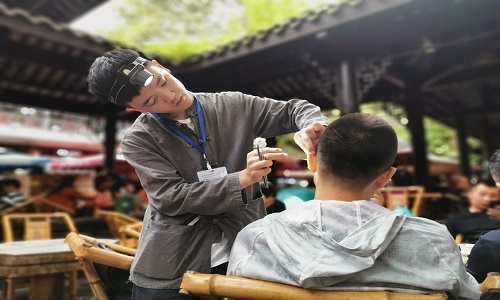
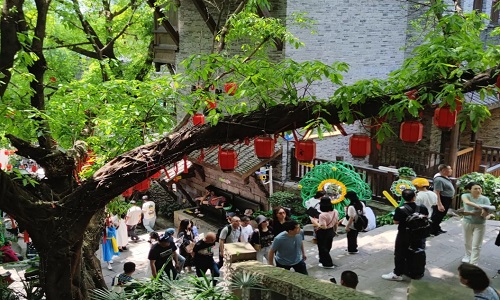
City Personality Tags
Chengdu: Anyì Bashì – The Art of Relaxed Living
Chengdu is China’s official "City of Leisure." Life here moves at a different pace:
Teahouse Culture: Spend 3 hours in People's Park with a cup of tea (25RMB), watching locals play mahjong. This isn't laziness—it's a philosophy.
Work-Life Balance: The famous saying is "In Beijing, they talk politics. In Shanghai, they talk money. In Chengdu, they talk about where to eat next."
Visual Cue: Notice how people walk 30% slower here than in Chongqing.
Chongqing: Huolà Zhíshuài – Fiery & Forthright
Chongqing is built on mountains and survivalist energy:
Port City Grit: Historically a tough river port, this is where you hear "speak with fists"—meaning direct action over words.
No Time for Pretense: While Chengdu has fancy cocktail bars, Chongqing has jianghu cai ("riverside dishes") eaten on plastic stools.
Visual Cue: Drivers honk 3x more here than in Chengdu.
Linguistic Fun: Dialect Showdown
Chengdu Dialect: "Soft & Melodic"
The Chengdu dialect sounds like "Sichuanese spoken with a silk glove":
Famous Phrase: Bashì dé ban – Means something is perfectly, utterly comfortable and satisfying.
Pronunciation: Tones are softer, with more nasal sounds.
Cultural Insight: The dialect reflects the value placed on harmony and avoiding conflict.
Chongqing Dialect: "Loud & Punchy"
The Chongqing dialect hits like "chili flakes to the eardrum":
Famous Phrase: Xióngqi! – Literally "erect and rise!"—a football cheer meaning "Go for it! Crush them!"
Pronunciation: Words are shorter, sharper, and end abruptly.
Cultural Insight: The dialect mirrors the city's history of resilience and directness.
How This Affects Your Travel Experience
Aspect Chengdu Style Chongqing Style
Asking for Directions "Maybe you could turn left up ahead?" (Indirect) "Go straight! Don't turn!" (Command)
Ordering Food "Could we have a little less spice, please?" "Boss, maximum spice!"
Evening Vibe Sipping craft beer in a quiet laneway Toasting with beer mugs on a loud street
Pro Tip: Code-Switching for Travelers
In Chengdu: Slow down. Say Bù zhaojí – "No hurry" and watch people smile.
In Chongqing: Be direct. Say Gao kuài dian! – "Do it faster!" to show you mean business.
This cultural contrast is why many Chinese say:
"Chengdu people drink tea and play mahjong, Chongqing people drink beer and conquer the docks."
6. Traveler's Matchmaking Guide: Chengdu vs. Chongqing
Choosing between Chengdu and Chongqing isn't about which city is better—it's about which city is better for you. Here’s how to match your travel style to your perfect urban playground.
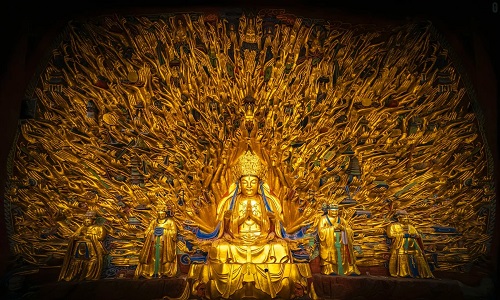
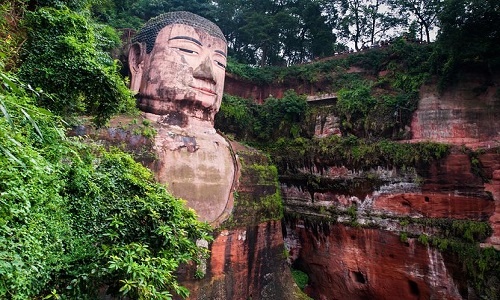
Chengdu: The Refined Cultural Sanctuary
Best For: Cultural Deep Divers
Chengdu’s 2,300-year history reveals itself in hidden teahouses and ancient temples.
Must-Do:
Attend a Sichuan opera face-changing show at Shu Feng Ya Yun
Practice calligraphy in Wenshu Monastery’s bamboo forest
Join locals for morning tai chi in People’s Park
Why It Fits: Chengdu’s flat, walkable layout makes cultural sites easily accessible.
Best For: Families with Kids/Elders
Gentle experiences with minimal physical challenges:
Stroller-Friendly: Wide sidewalks in Jinli Ancient Street
Senior-Friendly:
Sit-down teahouses every 200m
Panda Base electric carts (¥10/ride) avoid walking
Kid Activities:
Panda volunteering programs
Non-spicy food options (sweet water noodles)
Accessibility Note: 92% of Chengdu’s attractions are wheelchair-accessible.
Best For: Spice-Wary Food Explorers
Chengdu’s cuisine offers gradual heat progression:
Mild Gateway Dishes:
Dan Dan Mien (can be ordered non-spicy)
Long Chao Shou (gentle wontons)
Customizable Hotpot:
70 percent of restaurants offer mild/spicy split pot
Heat Index: Chengdu dishes average 30,000 SHU vs. Chongqing’s 50,000+ SHU.
Chongqing: The Adrenaline-Fueled Adventure
Best For: Photography Obsessives
Every corner offers dramatic visuals:
Iconic Shots:
Hongya Cave’s layered neon lights
Liziba’s train piercing skyscrapers
Fog-veiled bridges at dawn (250 foggy days/year)
Pro Tip: The Grand Theatre steps capture entire Jiangbei skyline reflections.
Best For: Extreme Experience Chasers
Chongqing’s terrain demands physical engagement:
Vertical Challenges:
Climb 1,800 steps up to Eling Park
Walk glass-bottom bridges over 300m drops
Urban Adventures:
Get lost in 3D pedestrian overpasses
Ride 90-degree monorail turns
Warning: Not suitable for travelers with mobility issues.
Best For: Hardcore Spice Devotees
Chongqing doesn’t do “mild”—it’s all-in on heat:
Ultimate Challenges:
Hotpot with "devil spicy" level
Street food like spicy rabbit heads (10/10 heat)
No Escape:
Even vegetable dishes come pre-loaded with chilies
Survival Tip: Locals use ice jelly to counter capsaicin burns.
Still undecided? Take the Sichuan Dual-City Challenge:
Days 1-3: Chengdu’s culture + pandas
Days 4-6: Chongqing’s thrills + extreme eating
Pro tip: Take the high-speed train (1.5hrs) to transition gradually from mild to wild!
7. Budget Breakdown: 4-Day Chengdu & Chongqing Combo Trip
For travelers wanting to experience both cities, here’s a realistic budget comparison for 2 days in Chengdu + 2 days in Chongqing, based on 2024 market prices. All costs are per person.
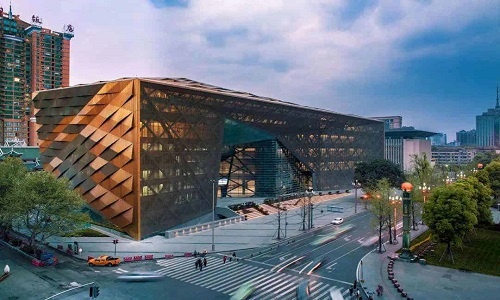
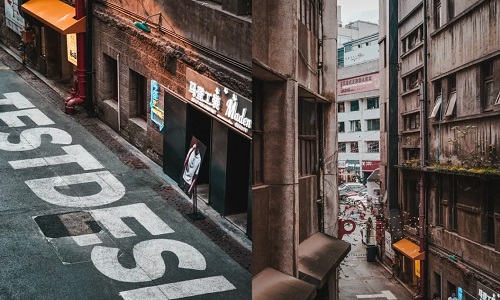
Detailed Cost Analysis
Expense Chengdu (2 Days) Chongqing (2 Days) Notes
Accommodation 400RMB 360RMB Chengdu: Budget hotels near Tianfu Square Chongqing: Guesthouses in Yuzhong District
Food 300RMB 280RMB Chengdu: Street food + 1 hotpot meal Chongqing: Noodles + local restaurants
Transport 100RMB 120RMB Chengdu: Metro + bike-sharing Chongqing: Taxis + cable cars
Attractions 150RMB 100RMB Chengdu: Panda Base 58RMB Chongqing: Hongya Cave free, cable car 20RMB
Total 950RMB 860RMB Combined Total: 1810RMB
Budget-Saving Tips
Accommodation
Book hostels with private rooms (e.g., Chengdu Mix Hostel, Chongqing Travelling With Hotel)
Use CTrip flash sales for 20% discounts
Food
Eat at local food courts (e.g., Chengdu Jinli Snack Street, Chongqing Ciqikou)
Avoid tourist traps near Kuanzhai Alley and Hongya Cave
Transport
Chengdu: Use shared bikes for short trips
Chongqing: Buy a metro day pass (18RMB unlimited rides)
Attractions
Chengdu: Wenshu Monastery (free) vs. Panda Base (58RMB)
Chongqing: Liberation Monument (free) vs. cable car (30RMB)
Hidden Costs to Watch
Chengdu: Tea houses in parks charge 30-50RMB for seating
Chongqing: Hongya Cave elevators may require paid access during peak hours
Intercity travel: High-speed train Chengdu - Chongqing 96-150RMB
How to Stretch Your Budget
Travel off-season (March-April, September-October)
Use WeChat Pay for discounts at local stores
Join group tours for discounted attraction tickets
This budget covers basic comfort-level travel. You can reduce costs by choosing dorm beds or splurge on luxury hotels and private guides.
8. Local Secrets: Hidden Gems in Chengdu & Chongqing
For travelers tired of tourist traps, these off-the-radar experiences—beloved by locals but unknown to most visitors—will give you unforgettable stories and Instagram gold.
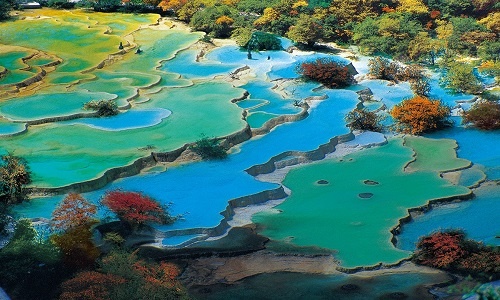
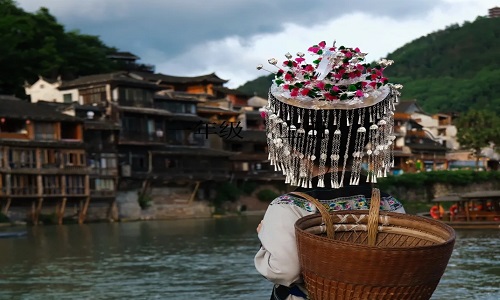
Chengdu's Underground Scene
1. Jinli Ancient Street at 6 AM
While crowds overwhelm Jinli from 10 AM-10 PM, dawn reveals its magic:
Why 6 AM?:
Shop shutters still down - authentic Ming-era architecture
Mist hangs between red lanterns - ethereal photo ops
Only taichi practitioners and street sweepers around
Pro Tips for Hanfu Photos:
Rent costumes from costume shop (opens 5:30 AM, 50RMB/hour)
Best spots: Stone arch bridge + teahouse corridor
Lighting: Soft morning glow avoids harsh shadows
2. People's Park Marriage Market
Every Saturday, parents swarm the "matchmaking corner" with resumes of single children:
What to expect:
Hundreds of umbrellas with printed profiles (age/income/house ownership)
Parents negotiating like stock traders ("My daughter is a doctor!")
Surreal cultural immersion—no other place like it on earth
How to respectfully observe:
Don’t take close-up photos without permission
Say "Wo jushi kandakan" ("I’m just looking") if approached
Chongqing's Underground Scene
1. Baixiangju's 24th Floor "Miracle"
This 1990s megastructure (no elevator!) hides surreal urban drama:
Why architects geek out here:
3 separate street entrances at different heights (1st/10th/15th floors)
Perfectly framed shots of Yangtze Cable Cars through rusted windows
Vintage Chongqing—old men playing mahjong in hallways
Secret photo strategy:
Floor 3-6: Cable car eye-level shots
Floor 13: Shot through drying laundry for texture
Time: 4-6 PM when light rays slice through buildings
2. Abandoned Radar Station on South Mountain
Locals’ best-kept secret for unbeatable free city views:
How to find it:
Take taxi to "Nanshan Botanical Garden"
Hike 20 mins up dirt path behind parking lot
Look for decaying concrete dome
Why it’s better than official viewpoints:
Zero tourists—just adventurous couples & photographers
360-degree views of Yangtze/Jialing river convergence
Gritty post-apocalyptic vibe (bring flashlight!)
Safety note: Watch for broken glass + go before sunset
Local Insights
Secret Spot Best Time Cost Risk Level
Jinli Dawn 5:30-7 AM Free Low
Marriage Market Saturday AM Free Medium (crowds)
Baixiangju 4-6 PM Free Medium (stairs)
Radar Station Sunset Free High (hike)
Pro Tips
Chengdu: Combine dawn Jinli visit with 8 AM Wenshu Monastery breakfast (¥5 Buddhist vegetarian noodles)
Chongqing: After Baixiangju, walk to Wangping Old Street for untouched 1950s architecture
These spots reveal the soul behind the postcards—where real life plays out against epic backdrops. As Chongqing photographers say: "The best views require climbing forgotten stairs."
9. The Ultimate Choice: Chengdu or Chongqing?
Choosing between Chengdu and Chongqing isn't about which city is "better"—it's about matching the destination to your travel style. Here’s who should pick which city, and how to combine both for the ultimate Sichuan basin experience.
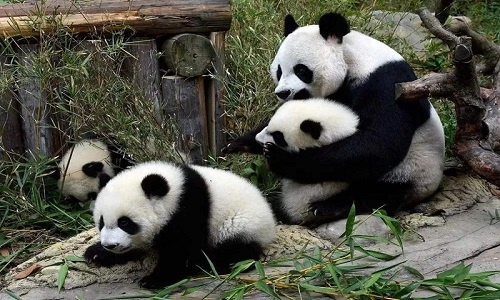
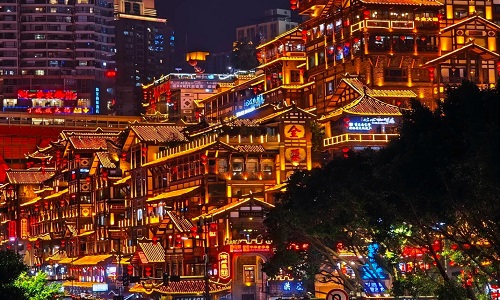
Choose Chengdu If...
You Want Cultural Immersion + Beginner-Friendly Food
Chengdu’s 2,300-year history and UNESCO City of Gastronomy status make it perfect for:
Culture Lovers:
Spend days exploring Jinsha Site Museum (3,000-year-old relics)
Practice kung fu with taoist masters at Qingcheng Mountain
Attend Sichuan opera face-changing shows in ancient teahouses
Food Explorers on Training Wheels:
Milder chili oil flavors (compared to Chongqing’s mouth-numbing spice)
"Yuan Yang" hot pot (half spicy, half bone broth) readily available
Snack streets like Jinli offer tiny portions for sampling
Relaxation Seekers:
Flat, bike-friendly streets with wide sidewalks
Parks where locals drink tea and play mahjong until midnight
Fewer stairs (key for elderly or stroller-pushing parents)
Ideal For: Families with kids, senior travelers, first-time China visitors, foodies who enjoy flavor over fire.
Choose Chongqing If...
You Crave Visual Drama + Extreme Culinary Adventures
Chongqing’s cyberpunk landscape and no-holds-barred cuisine deliver adrenaline through your eyes and taste buds:
Thrill Seekers & Photographers:
Ride elevators through skyscrapers to reach new streets
Capture 8D nightscapes from Nanbin Road viewpoints
Walk the glass-bottom platform over 300m drops
Spice Warriors:
Dare to try 90% chili oil hot pot (no compromise broth)
Hunt street food roulette where "mild" isn’t in the vocabulary
Experience the numbing-tingling "ma la" sensation at its source
Urban Explorers:
Navigate hidden staircases leading to underground markets
Discover WWII bunkers converted into speakeasy bars
Feel the energy of China’s fastest-growing megacity
Ideal For: Adventurous solo travelers, photographers, extreme foodies, anyone under 40 with good knees.
The Best Choice? Do Both! (High-Speed Rail Makes It Easy)
Chengdu and Chongqing are only 1.5 hours apart by bullet train—making a dual-city trip not just possible, but incredibly rewarding. Here’s how to combine them perfectly:
Sample 5-Day Itinerary:
Days 1-2 (Chengdu):
Morning: Panda Base at opening time (7:30 AM)
Afternoon: Wenshu Monastery tea + Jinli Street snacks
Evening: Hot pot with gradual spice buildup
Days 3-5 (Chongqing):
Morning: Stilted buildings of Hongya Cave
Afternoon: Yangtze River Cable Car ride
Evening: Extreme hot pot followed by river views
Budget Breakdown (Per Person):
Expense Chengdu (2 Nights) Chongqing (2 Nights)
Accommodation 60USD (boutique hostel) 50USD (central hotel)
Food 45USD (including tea culture) 40USD (street food focus)
Attractions 25USD (panda base + temple) 15USD (cable car + free exploring)
Train Ticket 20USD (Chengdu to Chongqing)
Total 130USD 125USD
Pro Tip:
Base in Chongqing (cheaper hotels) and day-trip to Chengdu if on a tight budget
Buy a Sichuan-Yi China Mobile data plan for seamless navigation in both cities
Last Word: Follow Your Travel Personality
Your heart says culture - Chengdu
Your soul says adventure - Chongqing
Your stomach says "feed me everything" - Both!
The cities may be neighbors, but they offer completely different experiences—making the Chengdu-Chongqing combo one of China’s most rewarding twin-center trips.
Explore Your Way Holiday’s Best Recommended Tours.
We design private and Tailor-made Chongqing Tours customized to your style of travel at affordable local prices. We will provide a private & spacious car and a local professional tour guide with over 5 years guiding experience only work for you or your group. Transport, ticket, and dining (We find the most authentic dishes popular with locals) all we will arrange for you according your requirements. Please check our most popular tours below:
Are the above sample tour programs not suitable for you? Dont worry, our Chongqing Tour Can Be Tailor-made based on your requirements and budget to create unique Beijing experiences that allow you to interact with the local people and culture. We are Beijing travel experts who know what your guidebook and foreign agencies don't. Our enthusiastic tour expert will promptly reply you in details within 24 hours.
Prev: A Local’s Guide to the Best Things to Do in Chongqing
Next: Where to Stay in Chongqing Best Hotels in Chongqing for Tourists
Wechat: Chinaprivatetour
24 Hours Hotline:
+8613735411378
1 to 1 tailor-made service from our professional travel advisors for the most sophisticated
Constantly excellent reviews for attraction, hotel and service Competitive price
Local experts provide quality tours Best selected knowledgeable local guides Authentic local restaurants
7*24 hours available to create you a worry-free tour. No Hidden Fees and absolutely no pressure to buy. Secured







